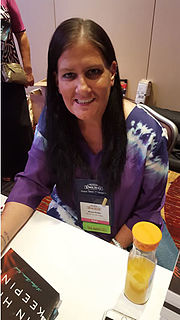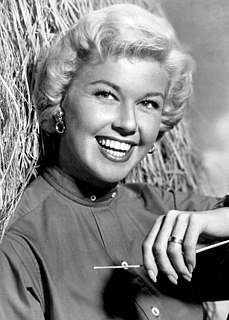A Quote by Nathaniel Hawthorne
She poured out the liquid music of her voice to quench the thirst of his spirit.
Related Quotes
She laid her head against his collarbone, and he kissed her temple. To her shock, she felt a shudder roll through his body about the same time she registered wetness against her skin. Tears. His tears. She started to turn around, but he tightened his grip. “Stay,” he said in a choked voice. “Just let me hold you, baby. Just let me hold you.
How will it ever be bearable, Priestess?” His voice was rough. He sounded completely broken. “You’ll see her again. She’s with Nyx now. She’ll either wait for you in the Goddess’s meadow, or she’ll be reborn and her soul will find you again during this lifetime. You can bear it because you know that spirit never really ends-we never really end.
...she could express her soul with that voice, whenver I listened to her I felt my life meant more than mere biology...she could really hear, she understood structure and she could analyze exactly what it was about a piece of music that had to be rendered just so...she was a very emotional person, Annette. She brought that out in other people. After she died I don't think I ever really felt anything again.
While He [the Lord Jesus] was sitting alone by the well, 'There cometh a woman of Samaria to draw water' (John 4:7). As man, the Lord was thirsty, and saw that someone who was naturally thirsty was coming to quench her thirst. As God, however, He also saw that her heart was athirst for the water of salvation, although she did not know Him Who could give it to her. So He hastened to reveal Himself to her longing soul for, as it is written, He Himself longs for those who long for Him (cf. Ps. 9:10; Prov. 7:15).
All of a sudden I understand why I like Aliki Barnstones poems so much. They remind me of the one she has studied most - shall we call her her master - Emily Dickinson. Not in the forms, not, as such, in the music, and not in the references; but in that weird intimacy, that eerie closeness, that absolute confession of soul.... In Barnstone, too, the two worlds are intensely present, and the voice moves back and forth between them. She has the rare art of distance and closeness. It gives her her fine music, her wisdom, her form. She is a fine poet.







































